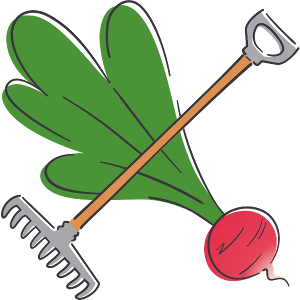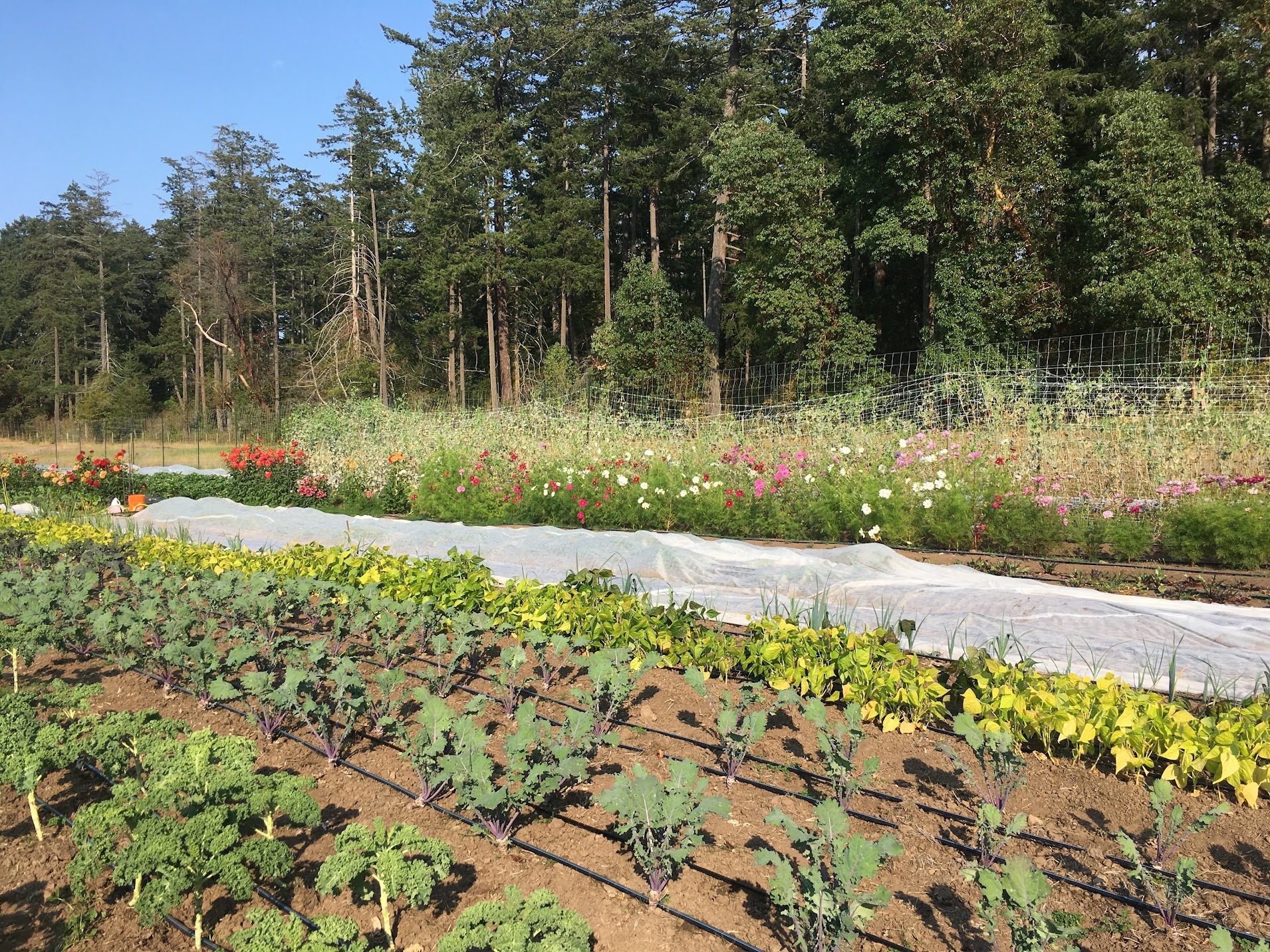The mission of the farm is to grow vegetables in an environmentally, financially and emotionally sustainable manner and ensure they are reaching a diverse customer base, focusing on the intersection between folks in the 2SLGBTQIA+ community and disabled folks.
Rake and Radish is a small-scale farm growing a wide range of vegetables, as well as berries and flowers, on a half-acre plot on leased land at the base of PKOLS on unceded lək̓ʷəŋən and W̱SÁNEĆ territories.
At Rake and Radish Farm, I aim to queer farming and make fresh, delicious vegetables more accessible to people in our community.
I operate with a triple bottom line: environmental, financial, and emotional. This means holistic success that takes into account more than just the financial success of the farm operation. Regenerative land stewardship, a fulfilling social life, relationships, and time to recharge are all part of the farm’s measure of success.

Huge thanks for the logo by Shae Perkins, @atomastromony on Instagram.
Our growing practices:
While the farm don’t have organic certification, I do not use any chemical fertilizers, pesticides, herbicides or GMO seeds, and am required to follow the regulations set out by the Islands Organic Producers Association (IOPA) to the best of my knowledge as a condition of my lease agreement.
I try to limit the use of plastic on the fields by using natural forms of mulch whenever possible and reducing the amount of rototilling done each season to help preserve soil biodiversity.
Habitat for pollinators and other beneficial insects is provided through the planting of cover crops and a wide variety of flowers. Pest and disease management is be done through crop rotation practices, healthy soil, physical barriers, and organic approved products, should the need arise.
I use a fertilizer mix of alfalfa meal, rock phosphate, dolopril lime, rock dust and kelp meal to boost soil nutrients. Bone and blood meal are also used on occasion. Compost, mulch, and cover cropping are also used to boost soil fertility and organic matter.
I don’t rely on unpaid interns.
I’m always happy to share my growing practices and answer any questions that you might have about what’s going into the soil and how I’m growing your vegetables!
